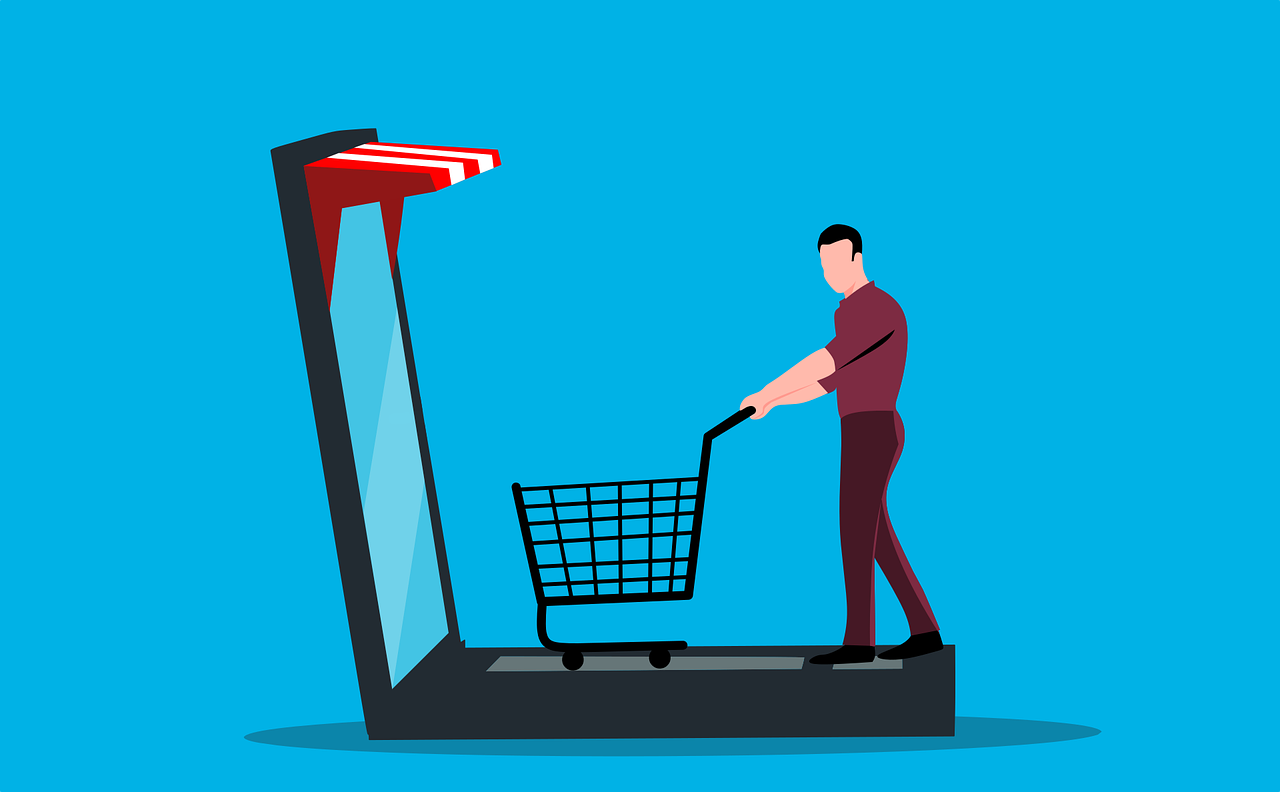
Do you want to strengthen your eCommerce website security? If yes, tag along to learn about its importance, pertinent issues, and measures to strengthen it.
Your e-commerce store is a treasure trove. It is full of products, buzzing with activity, and generating valuable revenue. But like any treasure, it needs protection. Your eCommerce website security protects against threats like hackers and data breaches.
Think of it this way – every purchase and click is a golden coin entrusted to you. A single security chink, a weak password, or a shaky website can be all it takes for those coins to vanish.
The consequences? Disastrous. Revenue is lost, customers become furious, and your reputation is ruined.
But a silent battle rages behind every click and purchase – the fight for online security. In 2023 alone, data breaches cost e-commerce businesses over $4 million.
However, the term e-commerce security should not instill anxiety in you. It is simply a set of practical tools and strategies readily available. We’re talking about Ecommerce trends to consider. This includes:
- Strong passwords
- Secure payment gateways
- Vigilant firewalls
This guide is your fortress, outlining the why, the what, and the how of e-commerce security.
What is eCommerce or Electronic Commerce Security?
E-commerce security involves combining human vigilance with powerful tools. This combination helps keep your eCommerce business protected.
Data breaches, scams, and malware attacks are all serious threats to a website. But just like a sturdy brick wall, e-commerce security guards everything valuable inside.
However, there are four fundamental pillars of electronic commerce security:
Privacy
Think of customer data as a locked vault. It must be protected from unauthorized access. This covers personal and financial details. Data leaks expose sensitive information. Sellers must build a data protection fortress. Use anti-virus, firewalls, and encryption.
Integrity
It’s the “keep-my-data-safe” principle. This principle ensures that online information stays untouched. Tampering or leaking data destroys trust and makes people question the platform’s safety.
Authentication
Authentication is like an online identity check. It confirms legitimate businesses and real products. Businesses show authenticity with certifications and reviews. Customers use secure logins and payment methods. This builds mutual trust and deters fraud.
Non-repudiation
It means “you can’t deny participation.” It is a legal principle in digital transactions. It ensures clear communication records and prevents denying signatures, emails, or purchases. It also adds accountability and security to online dealings.
Importance of E-commerce Security & Why You Can’t Afford to Overlook eCommerce Security?
If you are an online business owner, eCommerce security is one aspect you cannot overlook. Customers come to your E-commerce website and place orders.
What does this reflect?
It shows that your customers are placing their trust in you and your eCommerce website. They share their personal data on your website. Some of this has confidential financial information. What would happen if such data were hacked and misused?
Your reputation would turn to dust. Customers would no longer trust your website. There would be no repeat purchases. What’s worse is the bad word-of-mouth publicity. Your entire eCommerce business setup will be on the path to slow death.
Why You Can’t Afford to Overlook eCommerce Security?
Here are some of the reasons why you cannot afford to overlook eCommerce security:
Customer trust
Imagine headlines screaming about your store’s data breach. Suddenly, your customers, who were once loyal knights, start losing faith. They begin to question your store’s reliability.
This loss of trust is like watching the strong castle walls of your reputation crumble. Every lost customer is a blow to your business, eroding the trust you’ve built over the years.
Loss of business resources
Imagine waking up one morning to find your storefront ransacked and cash missing. Hackers are like digital burglars, leaving your online treasure chest empty.
Every piece of customer data is a gold coin in your vault. A data breach is like a heist, stealing those coins and leaving you vulnerable. It’s not just immediate losses; it’s the future growth stolen, and dreams left dusty on the shelf.
Legal complications
Breaking data privacy laws isn’t just a slap on the wrist; it’s a legal maze. Imagine endless paperwork, court hearings, and hefty fines draining your energy and resources. It’s like sinking into a digital swamp, every step requiring double the effort.
Continuity
Your online store is your livelihood, your digital haven. Hackers can shut the door, locking out customers and causing lost sales.
It’s a forced vacation but with mounting bills and a growing panic. Building strong security is like installing an unbreakable lock, keeping your business thriving. This is where it becomes crucial to consider ecommerce security threats and solutions.
Customer data protection
If you overlook eCommerce security, then you cannot keep customer data protected. And think about it – why would your customers continue with you then?
One data breach and customers will leave you within a flick of a second. On the other hand, if you keep them protected, they will never think of leaving you!
Competitive advantage
Who do you think your customer would prefer – an eCommerce with bulletproof security or one with a careless attitude?
People don’t merely buy stuff because it glitters. Modern buyers are smart, and they know the importance of keeping their data safe. So, if you want to gain a competitive advantage, consider the safety aspect.
Threat-evolution
Even cyber-attacks have evolved over the past two decades. Do you think old and obsolete methods would work on modern cyber threats?
With threat evolution, it is important that your business evolves its security strategy. One attack and everything you’ve built can just be destroyed in a split second.
Common E-commerce Security Issues
Like an army of digital bandits, these are the foes you need to be prepared for. Here are some common eCommerce security issues:
Weak Passwords
Hackers love easy passwords. Some examples are birthdays, names of pets, mobile numbers, etc.
It is one of the prime reasons eCommerce stores today insist on using strong passwords. These are the ones with a combination of alphabets, numbers, upper-case, lower-case, etc.
Unsecured Payment Gateways
Using unsecured payment gateways is like leaving your treasure chest open. SSL certificates and secure payment gateways are your steel doors. Websites that use unsecured payment gateways to get cheap deals regret it later.
Website Vulnerabilities
Outdated software and plugins are like cracks in your walls. When eCommerce businesses do not update their systems regularly, they leave websites vulnerable.
Malicious Attacks
These are sneaky traps that inject malicious code into your website. Web application firewalls and Code security best practices are your shields. The major victims are E-commerce stores that fail to use firewalls from the onset.
Malware
Malware is a disguised set of codes designed to damage or disable your website’s features. In the worst cases, malware can steal customer data or hijack transactions. Sometimes, it may even take control of an entire eCommerce website.
Phishing
It is a deceptive practice in which attackers disguise themselves as trustworthy entities. They do this to extract sensitive information from victims. It can lead to unauthorized access to customer accounts and financial fraud.
E-Commerce Website Security Measures
Here are some effective eCommerce website security measures that you can adapt:
Strong Passwords and Multi-Factor Authentication
Think of these as keys to your virtual vault. Weak passwords are flimsy locks, easily picked by digital thieves. Enforce strong combos and multi-factor authentication, like a two-step verification for your door. Don’t let weak passwords be the back door to your online treasure trove.
Install SSL Certificate
An SSL certificate isn’t just a tech term; it’s a trust signal. It is like a shining neon sign that screams “Trusted Shop!” It shows customers you’re a reputable shop, not a shady alleyway. It secures connections, encrypts data, and boosts search engine rankings. So, buy SSL certificate and install it for maximum website security and increased user trust.
Regular Updates
Hackers exploit outdated software, just like burglars love unlocked windows. Remember those pesky security patches for your phone? They’re not just annoying reminders; they’re digital shields. They stop hackers who exploit outdated software like opportunistic burglars. Regular updates and digital patches keep your website secure and the intruders out.
Web Application Firewalls and Intrusion Detection Systems
Firewalls and intrusion detection systems act like watchtowers, sounding the alarm in trouble. They give you time to react and stop attacks before they wreak havoc. Don’t leave your digital borders unguarded. Invest in these early warning systems and rest easy knowing your castle is protected.
Secure Payment Gateways and Data Storage
Storing customer data on your servers is like keeping cash under your mattress. Don’t hoard customer data like a dragon with its gold. To safeguard sensitive information, use secure payment gateways and data storage solutions.
Employee and Customer Education
Cybersecurity isn’t just about fancy technology; it’s about collective awareness. Train your staff and educate your customers on good cyber hygiene practices. By spreading knowledge, you create a united front against cyber threats. This would turn your entire eCommerce ecosystem into a security stronghold.
Conclusion
E-commerce is booming, but trust is the currency that keeps it thriving. Building an “e-commerce empire” requires being a digital guardian. You should protect your customers’ data with the enthusiasm you’d protect your own.
Security isn’t a luxury; it’s the moat around your castle, the sentry at your gate. Be vigilant, implement these measures, and reign supreme in the digital marketplace.
Remember, in the online realm, security isn’t just technical jargon. It’s about building trust and ensuring your e-commerce stands strong against all threats.
Was this news helpful?










 Yes, great stuff!
Yes, great stuff! I’m not sure
I’m not sure No, doesn’t relate
No, doesn’t relate



